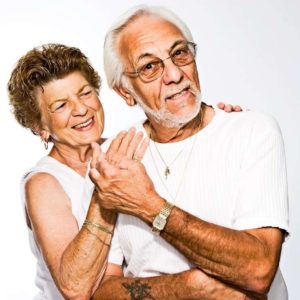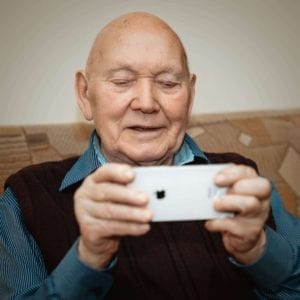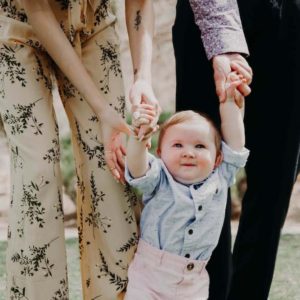WHAT IS THE SECRET OF AGING WELL?

Do you know the secret of aging well? Eating and exercise are essential, but these are not secret. When it comes to growing older, the emphasis is usually on “anti-aging,” which is just not possible, regardless of the commercials.
We all grow older from the moment we are born, some gracefully, others not so much. Many people have written about aging as if it is a choice, but my observation is that even those who choose to eat right, exercise, and avoid toxic substances also grow old. Maybe a bit slower than the rest of us, but old, nevertheless. (Photo by Marisa-Howenstine on Unsplash)
IMMORTALITY
 When I was twenty, thirty, or even fifty, I never counted years the way many people do. I didn’t ascribe certain privileges, wisdom, or losses to specific years as if they were all etched in stone like drinking at twenty-one.
When I was twenty, thirty, or even fifty, I never counted years the way many people do. I didn’t ascribe certain privileges, wisdom, or losses to specific years as if they were all etched in stone like drinking at twenty-one.
As many of us have, I lived with the abandon of an eighteen-year-old who believes she is immortal. Even today, I entertain ideas and dreams that will take me decades to carry out. For this reason, I never really know how old I am.
Part of me never left adolescence. That’s the part that tingles with learning a new skill or getting something new I don’t need. It’s the part that jumps into taking risks without worry because, after all, age is just a number, and I am immortal. (Photo by Liv-Bruce on Unsplash)
MIDDLE AGE AND BEYOND
 Another part of me has lingered in middle-age for nearly three decades. Middle-aged spread may be my only immortal part (Photo by Lance-Grandahl on Unsplash)
Another part of me has lingered in middle-age for nearly three decades. Middle-aged spread may be my only immortal part (Photo by Lance-Grandahl on Unsplash)
The reality of growing older first happened in my fifties. I went to get my hair cut, and the hairdresser pointed out some grey strands. “Do you want some color added? It will give you body.”
“Don’t touch them! I earned every one of those hairs!”
Apparently, she made her living helping people hide evidence of maturity instead of celebrating the significance of grey hair and wrinkly skin. What I didn’t know then, that I discovered 20 years later, is not only does hair color change over time but so does the texture and quantity.

Men seem more at home with a naked dome, and some have heads like a mirror in their thirties. (Photo by Adam-Niescioruk on Unsplash)
I am not sure a change in cranial forestation is a significant sign of growing older, though wouldn’t it be nice to have hair that changes with the seasons like leaves?
How colorful that would be in autumn, and easy to care for in winter! I bet we would celebrate that!
GROWING OLDER

We correlate aging to loss most of the time. When my parents were my age, they put their teeth in a dish at night. I just returned from having gold wrapped around a back tooth.
Am I richer for the experience? No. But my dentist is!
Losing body parts is part of the journey, and the longer the trip, the more road wear on the chassis. (Photo by Simon-Godfrey on Unsplash)
However, what I find disturbing is all the focus we put on the losses of aging instead of the gains. We experience losses beginning immediately after birth, but we don’t hear a lot of lament about these. An infant loses his ability to sleep 18 hours a day as he discovers a world to explore with all his senses. Sweet soft cuddliness disappears once he finds his feet and heads for a mud puddle.
 But we don’t call this ‘aging.’ We use words like ‘development’ or ‘growth,’ and we celebrate. We clap our hands in approval and encourage him to keep going. We keep journals and photo albums to record the changes. When do we stop writing down the changes in a loved one’s life and begin counting losses instead? And why?
But we don’t call this ‘aging.’ We use words like ‘development’ or ‘growth,’ and we celebrate. We clap our hands in approval and encourage him to keep going. We keep journals and photo albums to record the changes. When do we stop writing down the changes in a loved one’s life and begin counting losses instead? And why?
At eighteen months, if we fall, people laugh and set us up on our feet to try again. What happens at twenty-five when we fall as an employee or a spouse? We get fired or divorced. And if we dare to stumble at sixty, we get pity. When do we stop ‘developing’ and begin ‘aging?’ (Photo by neonbrand on Unsplash)
The difference is essential because ‘developers’ get encouragement and are celebrated. The elderly get set aside with attendant care. It can feel a lot more like punishment.
AGING VS LIVING
I am talking about mindset here. Let’s call aging what it is—a passage of time and its effect on our bodies. The difference between a 20-year-old car and a 90-year-old body is the vehicle is static. It doesn’t grow. It rusts. Granted, I have some rust, and there will be more. (I already have an appointment for another gold crown.) But I also grow. I will grow every moment until I take my last breath. Even if my mind fails and my body crumbles, if I am alive, I am growing. Why else would you feed me?
We consider it cruel to withhold food and water to ourselves or anyone else who is still alive, but we routinely deny nourishment for our souls. 
Do books nourish you? Are you reading to someone else? Someone who can no longer read on their own? (Photo by Alex-Blajan on Unsplash)
What was a recent course you took in an area you never studied before? That could be adult evening school, college courses (often free for seniors), and online courses in everything you could think of.
Perhaps what calls you is arts and crafts or health and fitness.
Do you sit passively and watch games on TV, or are you up for learning bocce or taking a hike? 
Do you have a skill or interest you could share with others, teaching a class or one-on-one? (Photo by Nathan-Anderson on Unsplash)
It amazes me the number of people who don’t know how to use their cell phones to explore their universe. Do they know they can read a book, find a recipe, or send a video to a distant loved one using their phone?
These are just some of the ways we “live”. I don’t know about you, but I plan to LIVE until I die.
THE SECRET IS IN THE LIVING
Celebrating aging is about mindset – a mindset of development, growth, and nourishment. There are apps specifically to help with memory loss, visual changes, and hearing loss. You may need them yourself. You may be able to teach them. Let’s not withhold the ‘food and water’ of personal and spiritual growth.
When we begin to substitute the heavily loaded language of aging with words like ‘’living,’ ‘growth,’ or ‘development,’ we may stand a chance of celebrating each change in a long life, instead of fading away.
We will have discovered the secret of never growing ‘old’.
(Read more about celebrating aging here.)
If you are not already on the mailing list to receive a note and
link to new posts weekly, why not do it now?


Della
Ardis,
Your message today was particularly timely as it is my birthday. I really enjoyed the message.
Della
Ardis Mayo
May your day be special! Happy birthday!
Susan Shofner
In two weeks I will be celebrating my 70th. Physically I can’t always do everything I used to do. Yet I can still do many things. In my circle of friends there are those who are my age and some who are younger. But it is the ones who are older who always put me in my place — “You are just a baby!” So I do what the young are doing — educating myself about the time I live in — the events that have brought us to the place we are now. Figuring out what is next and how to accomplish it. A process without end. So this “baby” will keep on developing — until I cannot.
Ardis Mayo
Happy Birthday, Susan. Thanks for replying! You have surely nailed the secret!
Bonnie Keast
An odd note: I just noticed that the only difference in the words “immoral” and immortal” is a “t”.
Going on…Was really taken with the your idea about loss vs. gain as we age and how we have labeled things differently for growing children and growing elders. Languaging is power! And we elders can begin to change things for future generations by our languaging about ourselves and our peers.
Ardis Mayo
HAHA – an opportunity to write another post? I didn’t want to invalidate or trivialize anyone’s experience of infirmity or severe decline, but how we use language can either become a weight-burden or a weight-lifter. Thanks for the comment.
Dara Perfit
We can make our world so much smaller if we only think about the losses of aging but those thoughts do sneak up and we have to be attentive that they don’t take over.
I find myself thinking of my mother and my aunt and understanding them so much better now that I have reached the age of ouches, stiffness, arthritis, and other joys. I wish I could tell them how much I now admire how they carried on anyway. My mother was traveling and playing tennis in her 80’s and enjoying every minute of it. Of course you had to hit the ball right to her but …….
The Covid challenge has certainly challenged us to enlarge our world from a small space! Mindset is crucial and that is something we have control over.
Ardis Mayo
Thank you for adding to the conversation, Dara.